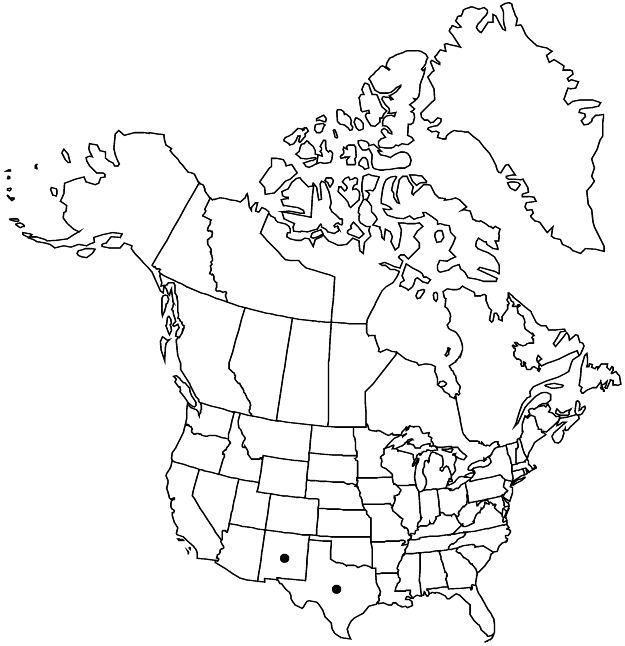Difference between revisions of "Oxalis frutescens subsp. angustifolia"
Phytologia 29: 463. 1975.
imported>Volume Importer |
GeoffLevin (talk | contribs) m (Fixed basionym parsing to match printed version) |
||
| Line 12: | Line 12: | ||
|rank=species | |rank=species | ||
|publication_title=in A. von Humboldt et al., Nov. Gen. Sp. | |publication_title=in A. von Humboldt et al., Nov. Gen. Sp. | ||
| − | |publication_place=5(fol.): 193 | + | |publication_place=5(fol.): 193; 5(qto.): 249. 1822 |
}} | }} | ||
|synonyms={{Treatment/ID/Synonym | |synonyms={{Treatment/ID/Synonym | ||
| − | |||
| − | |||
| − | |||
| − | |||
|name=O. berlandieri | |name=O. berlandieri | ||
|authority=Torrey | |authority=Torrey | ||
| Line 61: | Line 57: | ||
|rank=subspecies | |rank=subspecies | ||
|parent rank=species | |parent rank=species | ||
| − | |synonyms= | + | |synonyms=O. berlandieri;O. lindheimeri;O. neaei;O. yucatanensis |
|basionyms=Oxalis angustifolia | |basionyms=Oxalis angustifolia | ||
|family=Oxalidaceae | |family=Oxalidaceae | ||
Latest revision as of 20:48, 9 December 2022
Herbs perennial, caulescent, caudex present, rhizomes and stolons absent, bulbs absent. Aerial stems usually 1 from base, erect, 8–35 cm, becoming woody proximally, loosely villous to puberulent, hairs long, curved, spreading to deflexed, orientation often mixed. Leaves cauline, pinnately compound, terminal leaflet on extended petiolule; stipules rudimentary; petiole 10–15 cm; leaflets 3, green, sometimes purplish abaxially, cuneate to obovate or oblong-obovate, 6–17(–25) mm, not lobed, apex of lateral leaflets singly or doubly notched, of terminal leaflet emarginate or notched, surfaces sparsely strigose-villous to glabrate, oxalate deposits absent. Inflorescences umbelliform cymes, 1–5-flowered; peduncles 10–25 cm. Flowers heterostylous; sepal apices without tubercles; petals yellow, 10–16 mm. Capsules broadly cylindric, 6–8 mm, sparsely villous on angles, glabrous between.
Phenology: Flowering Mar–May, Jul–Oct.
Habitat: Pastures, roadsides, grasslands, live oak woods, sand, sandy loam.
Elevation: 0–200 m.
Distribution

N.Mex., Tex., Mexico, Central America, South America.
Discussion
Subspecies angustifolia (type from central Mexico) has the widest distribution of the four subspecies recognized by A. Lourteig (1975). Subspecies frutescens (type from Martinique) occurs in the West Indies and into the South American Andes; subsp. borjensis (Kunth) Lourteig (type from Colombia) and subsp. pentantha (Jacquin) Lourteig (type from Venezuela) are both restricted to the Andes.
Selected References
None.